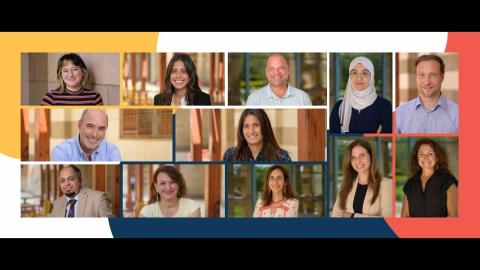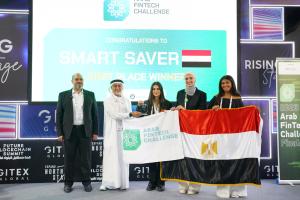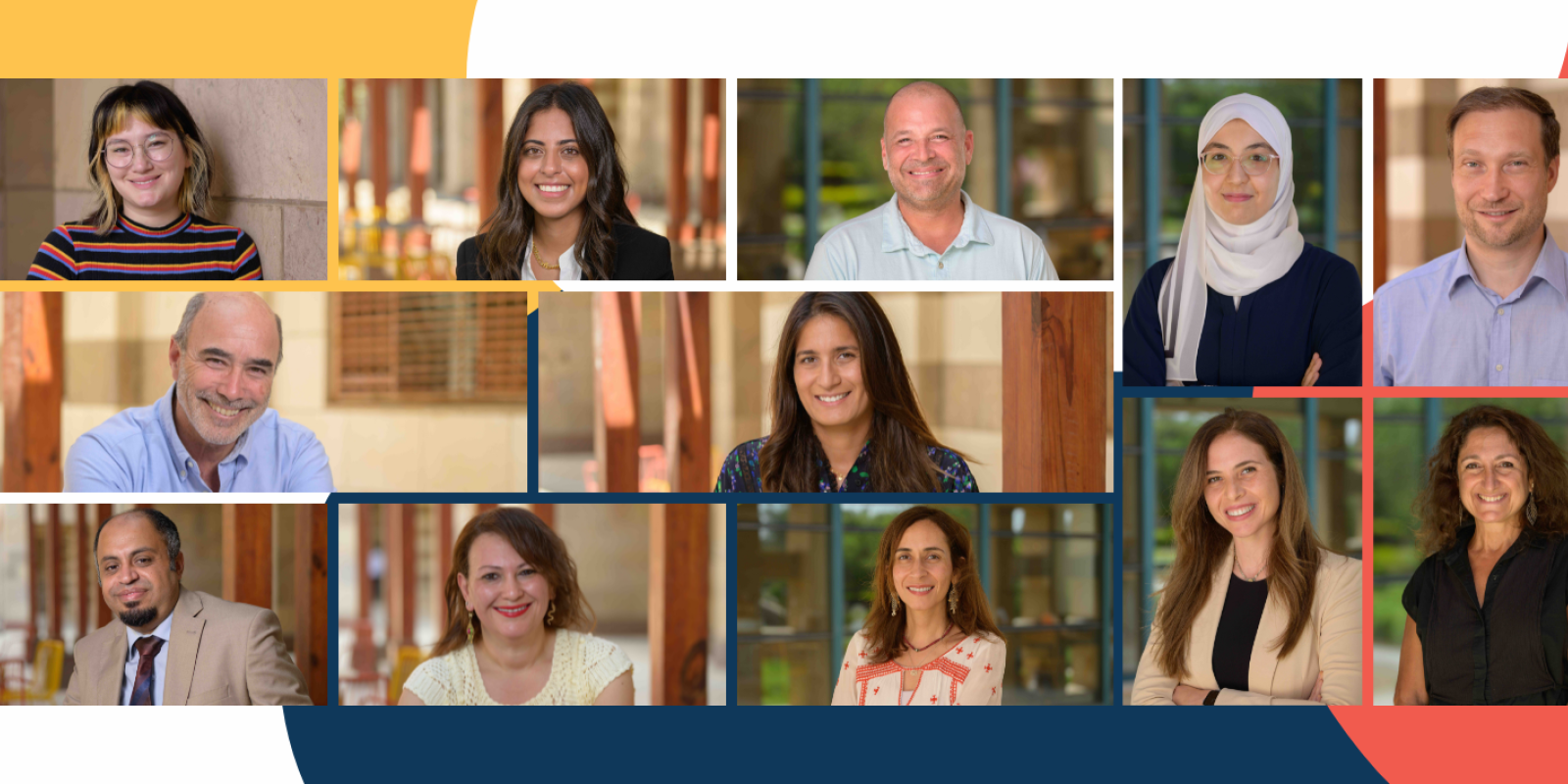
A Warm Welcome to Our New Faculty
Welcome to our newest faculty members joining us this fall! The incoming faculty are bringing their diverse backgrounds and varied research interests to AUC, with studies ranging from development economics to archival ethics to Mamluk manuscript culture, and everything in between. We’re happy to welcome them to the University and get to know them through their video introductions.
Get to Know Our New Faculty
Join us in welcoming our new AUC faculty members, who come from around the world and bring fresh perspectives to the classroom. Find out about their interests, passions, and sources of inspiration!
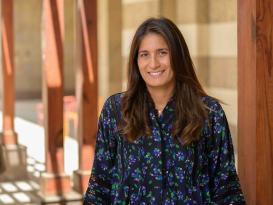
Hedayat Heikal '06
Assistant Professor of Law
Department of Law
Research Interests: Comparative and public law, law and technology
"I look at the regulation of social media firms, venture capital firms, and other contemporary issues to understand how global systems are trying to resolve these cases, especially from a public law perspective."
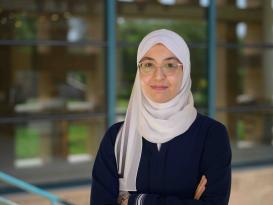
Dina Mahmoud ’19
Assistant Professor
Department of Computer Science and Engineering
Research Interests: Computer hardware, specifically hardware security of heterogeneous computing platforms
"In the future, I plan to further explore systems design while still guaranteeing their hardware security."
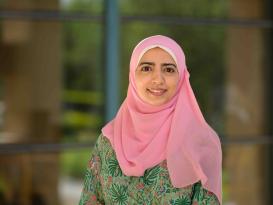
Mai Mahmoud
Postdoctoral Fellow
J-Pal MENA
Research Interests: Development, agriculture and resource economics
"In development economics, I’m doing applied microeconomic research to study the impact of randomized interventions on the livelihood of people living in low-income or developing countries."
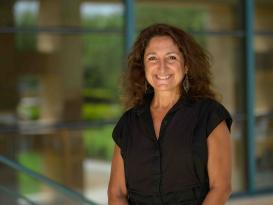
Lara Baladi
Associate Professor of Practice
Department of the Arts
Research Interests: Popular language, from traditions to vernacular languages
"I’m interested in languages that emerge from different communities or traditions. I’ve been working on the history of revolt, revolutions and protests across the world in the past, present and future."
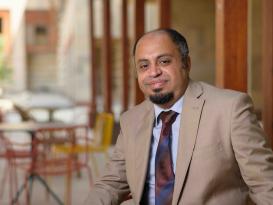
Karim Banawan
Assistant Professor
Department of Electronics and Communications Engineering
Research Interests: Wireless communication, information theory
"My specialties are communication engineering, wireless communication and physical layer, security and privacy. And recently, I got into machine learning in communication."
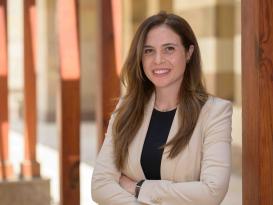
Yasmine Eissa '05, '09
Assistant Professor
Mohamed Shafik Gabr Department of Economics
Research Interests: Global value chains
"I’m researching the effect of international interlinkages on labor market outcomes and other development milestones like innovation."
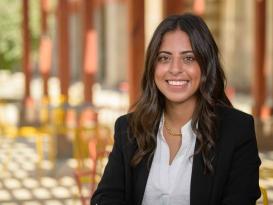
Yasmine Elkhateeb
Postdoctoral Fellow
J-Pal MENA
Research Interests: Development, gender and migration economics
"My recent research looked at the impact of male migration on female labor force participation in Egypt."
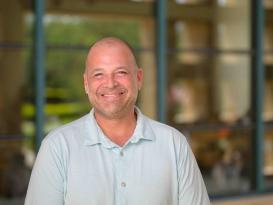
Jason Myrick
Associate Professor of Practice and Associate Director of Digital Education
Center for Learning and Teaching
Research Interests: Online and blended learning, AI in education
"My fields of interest are instructional design, educational technology, quality assurance, and online and distance education."
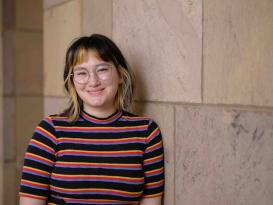
Elizabeth ‘Liz’ Day
Assistant University Archivist for Records Management
Libraries and Learning Technologies
Research Interests: Integrated records management programs, archival ethics, open access and legislated documentary obligation
“At the start, I really loved puzzles. So I thought, how can I translate my love of puzzles into something more professional? That’s how I ended up working in archives.”
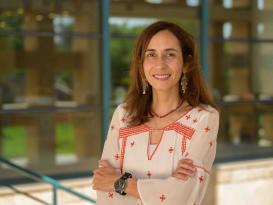
Noha Abou-Khatwa ’98, ’01
Assistant Professor of Islamic art and Architecture
Sheikh Hassan Abbas Sharbatly Department of Arab and Islamic Civilizations
Research Interests: Arabic calligraphy, manuscript illumination, art and architecture of Egypt and the Persian world
"My main research interests are the manuscript culture, architecture, and intellectual life of the Medieval Muslim world with a focus on the Mamluks."
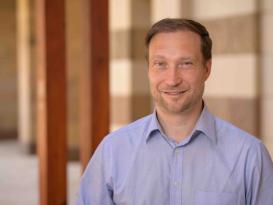
Sebastian Ille
Associate Professor
Mohamed Shafik Gabr Department of Economics
Research Interests: Institutions, social dynamics, migration and chaos theory
"I’m what you might consider a heterodox economist; I’m looking at alternative approaches to economics, working with social scientists and anthropologists. In addition to looking at institutions and groups, I’m interested in understanding why people do what they do, how individual behavior is defined, how individuals act as a larger part of society and how society evolves."
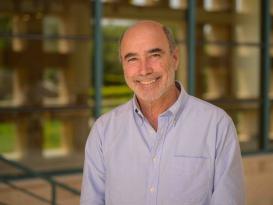
José Galán
William K. Simpson and Marilyn M. Simpson Visiting Professor in Egyptology
Department of Sociology, Egyptology and Anthropology
Research Interests: Egyptology, archaeology and ancient history
"When I first came to Egypt, I fell in love — not only with the ancient monuments but also with the people and the landscape. Soon after, I decided that this was my life, that I wanted to be an Egyptologist. Now, I have been running an excavation down in Luxor for 23 years where we have discovered all sorts of amazing things. We have flower bouquets that were used as a farewell to the deceased 3,000 years ago, among other everyday objects. That’s why I wanted to become an Egyptologist; we share so much in common with the ancient Egyptians."
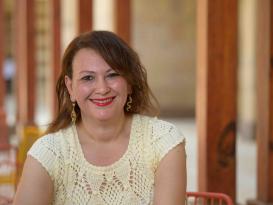
Nermine Said '00
Associate Professor of Practice
Department of the Arts
“I’m coming from a professional background as a costume designer and am entering academia as a new beginning. I made the switch because I love engaging with students and I love the human element in teaching.”
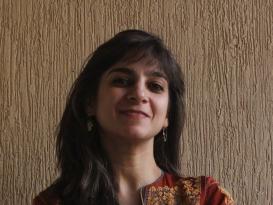
Aya Musmar
Assistant Professor
Department of Architecture
Research Interests: Displacement and refugee camps, subversive aesthetics in art and architecture, critical heritage studies

Salah Al-Agha
Professor
Department of Mechanical Engineering
